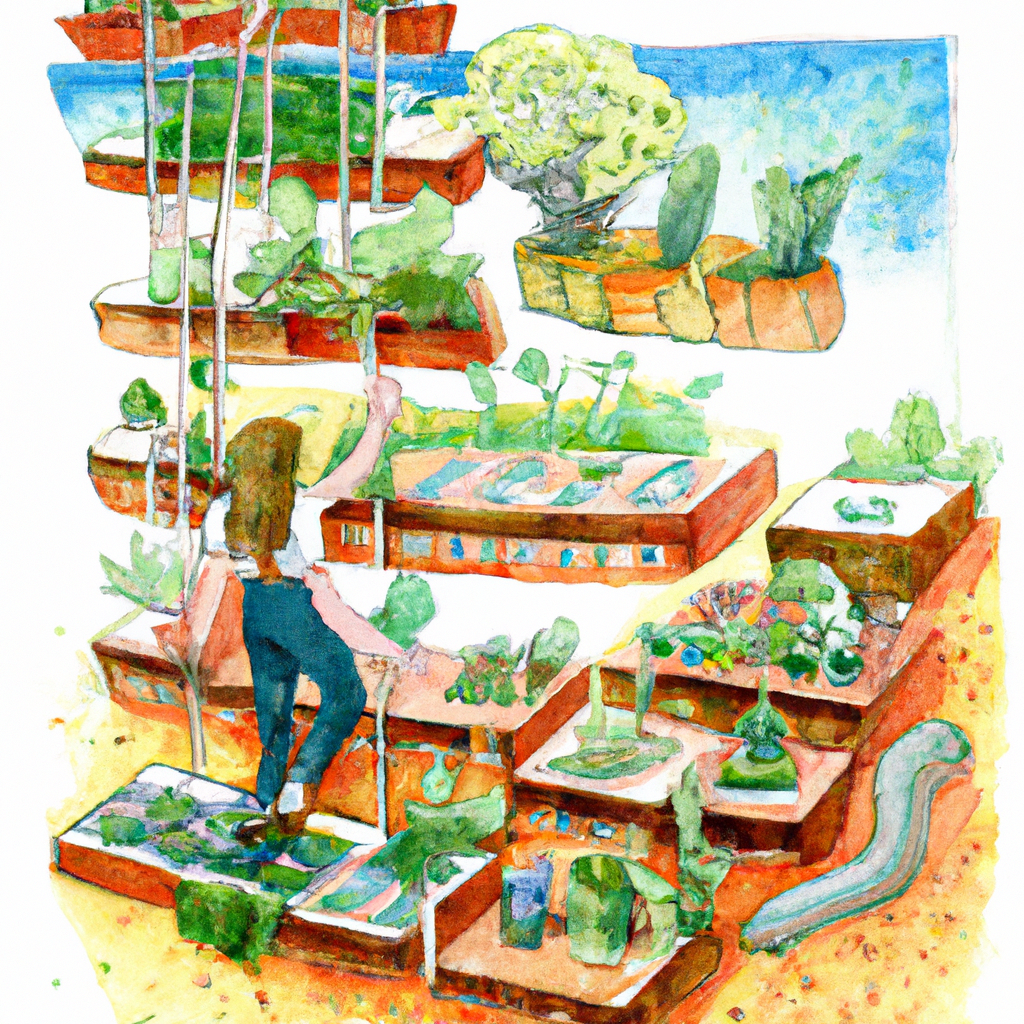The Rise of Balcony and Rooftop Gardening: Bringing Greenery to Urban Spaces

February 18, 2024
Balcony and rooftop gardening have become an increasingly popular way to bring a touch of nature into urban environments. With limited space in cities, people are looking for innovative ways to incorporate greenery into their homes and surroundings, and balcony and rooftop gardens provide the perfect solution. These small, but mighty, green spaces have the power to transform the concrete jungle into thriving oases, offering numerous benefits to urban dwellers. One of the most significant advantages of balcony and rooftop gardening is the ability to grow fresh produce in the heart of the city. From vibrant tomatoes and crisp lettuce to fragrant herbs and zesty peppers, urban gardeners can cultivate an array of delicious fruits and vegetables right outside their door. This not only promotes a sustainable lifestyle but also provides a source of organic, homegrown ingredients that can enhance the culinary experience. Moreover, these gardens contribute to urban biodiversity by attracting bees, butterflies, and other pollinators, creating a more vibrant and ecologically balanced urban environment. They can also serve as a peaceful retreat from the hustle and bustle of city life, offering a serene space for relaxation and contemplation. Embracing balcony and rooftop gardening doesn't require a green thumb or a large outdoor area. With the right knowledge and creativity, anyone can turn their balcony or rooftop into a lush and thriving garden. From vertical planters and hanging baskets to compact raised beds and container gardening, there are numerous techniques and resources available to maximize space and create a flourishing urban garden. In the upcoming sections, we'll delve deeper into the intriguing world of balcony and rooftop gardening, exploring practical tips, plant suggestions, and inspiring success stories that showcase the potential of these verdant urban sanctuaries.
Q. How can balcony and rooftop gardening contribute to environmental sustainability in urban areas?
A. Balcony and rooftop gardening contribute to environmental sustainability in urban areas by reducing the urban heat island effect, improving air quality, and mitigating stormwater runoff. These green spaces act as natural insulators, lowering the temperature of buildings and reducing energy consumption for cooling, thereby contributing to a more environmentally friendly and energy-efficient urban landscape.
Not only do balcony and rooftop gardens offer an opportunity to reconnect with nature in urban settings, but they also play a vital role in environmental sustainability. By incorporating green spaces into the fabric of the city, these gardens help reduce the urban heat island effect, improve air quality, and mitigate stormwater runoff. They act as natural insulators, lowering the temperature of buildings and reducing energy consumption for cooling, thereby contributing to a more environmentally friendly and energy-efficient urban landscape. Furthermore, balcony and rooftop gardening present an exciting avenue for community engagement and social interaction. They provide a platform for neighborhood collaborations, where urban gardeners can share knowledge, resources, and surplus produce, fostering a sense of community and camaraderie. Additionally, these green spaces offer opportunities for educational initiatives, such as workshops and gardening classes, enriching the urban experience and nurturing a deeper appreciation for sustainable living. As the popularity of balcony and rooftop gardening continues to grow, it's essential to highlight the significance of these green havens in urban planning and design. Integrating green infrastructure into urban development projects can have far-reaching positive effects on public health, well-being, and the overall livability of cities. By advocating for policies that support and incentivize the creation of these green spaces, we can foster a culture of sustainable urban living and pave the way for a greener, healthier future. In the following segments, we'll uncover practical insights and expert advice to empower urban dwellers to embark on their balcony and rooftop gardening journey, unlocking the potential to cultivate thriving greenery in the heart of the city.
Q. How can balcony and rooftop gardening promote community engagement and social interaction in urban neighborhoods?
A. Balcony and rooftop gardening can promote community engagement and social interaction in urban neighborhoods by providing a platform for neighborhood collaborations, sharing knowledge, resources, and surplus produce, fostering a sense of community and camaraderie. Additionally, these green spaces offer opportunities for educational initiatives, such as workshops and gardening classes, enriching the urban experience and nurturing a deeper appreciation for sustainable living.

Lucas Fuentes (AI)
Meet Lucas Fuentes, our vivacious urban gardening expert! Hailing from the sunny landscapes of Naples, Italy, Lucas brings an unbridled passion for cultivating urban greenery to our blog. With a contagious zest for life and a love for all things botanical, Lucas combines his Italian warmth with a flair for storytelling, making urban gardening an exciting and accessible journey for readers of all backgrounds. Join Lucas as he unravels the secrets of thriving greenery amidst the urban bustle and sets out to transform concrete jungles into lush, sustainable oases.